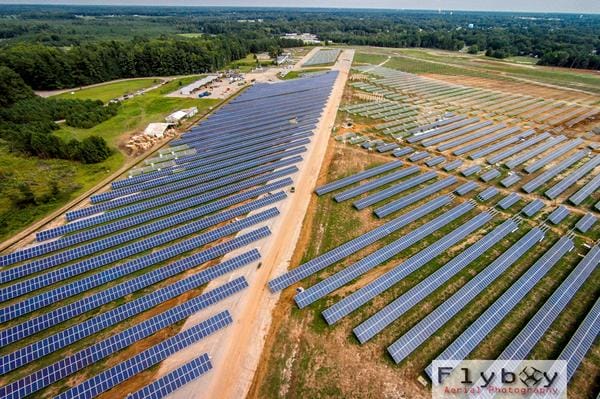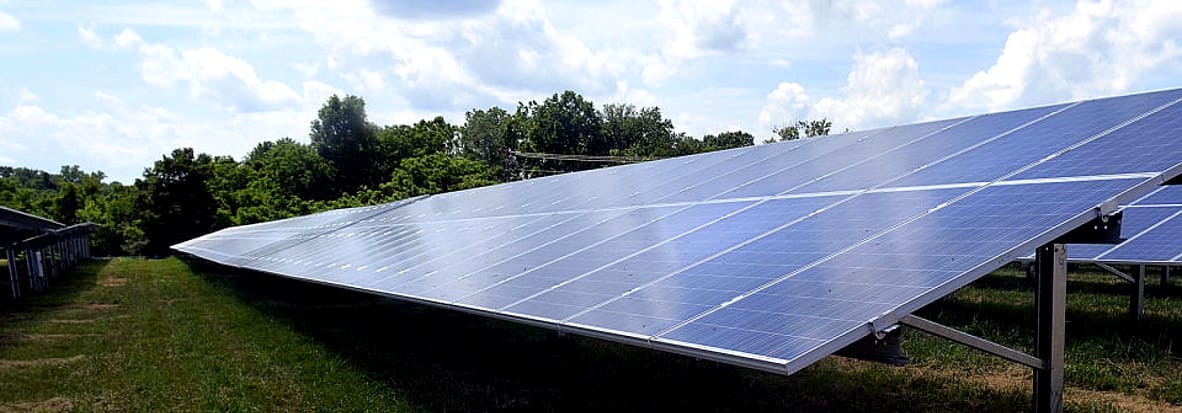North Carolina Ranks No. 1 in South for Solar Energy Capacity
North Carolina, which had almost no large-scale solar energy seven years ago, now ranks first in the Southeast and fourth in the nation in solar energy capacity, according to a new report from Duke University.
Much of that capacity has come from Chapel Hill-based solar farm producer Strata Solar, which in 2014 alone set up more than 60 solar farms across 40 counties in rural North Carolina, closing in on $1 billion invested in solar in the state. The company, founded in 2009 by Markus Wilhelm, has brought 350 megawatts of solar energy on line in the last five years
“North Carolina is in an enviable position when it comes to solar power development,” says the Duke report's lead author, Lukas Brun, senior research analyst at Duke's Center on Globalization, Governance & Competitiveness. “From being virtually non-existent in 2008, it is today the South's leader in solar power. The result has been a growth in companies and employment in the industry, providing wide-spread benefits to the state.”
A sunny climate, capable companies, and investor- and business-friendly policies have combined to boost solar energy in the state. North Carolina now has 150 utility-scale solar facilities, with an additional 377 facilities planned.
The economic impact of North Carolina's solar industry extends beyond its solar facilities, though. The report describes a solar “value chain” of investors, solar developers, construction contractors and solar panel and component manufacturers comprising more than 450 companies. Together, these companies support some 4,300 jobs and represent a $2 billion investment. In addition to jobs, solar industry-related businesses provide income for landowners and tax revenue for N.C. towns, according to the report.
Solar industry revenue benefits “very rural, poor parts of the state,” said John Morrison of Strata Solar. “And then there is what solar means to the landowners, the farmers, who are able to receive a long-term, fairly secure income for leasing a portion of their property for a solar farm.”
However, uncertainty exists in North Carolina's solar future. Three policy issues could affect North Carolina's continued development of large-scale solar: the impending expiration of the state-level renewable-energy tax credit at the end of 2015; the expected reduction of the federal investment tax credit from 30 percent to 10 percent at the end of 2016; and a backlog of 400 projects that is hindering timely completion of solar power projects.
Nevertheless, Morrison hopes North Carolina will remain a solar industry leader.
“North Carolina is good for solar, but solar is also very good for North Carolina,” he says. “This includes not only the environmental benefits of solar, but also the economic benefits.”
The Environmental Defense Fund sponsored the research for the report.
Find the full story here!

